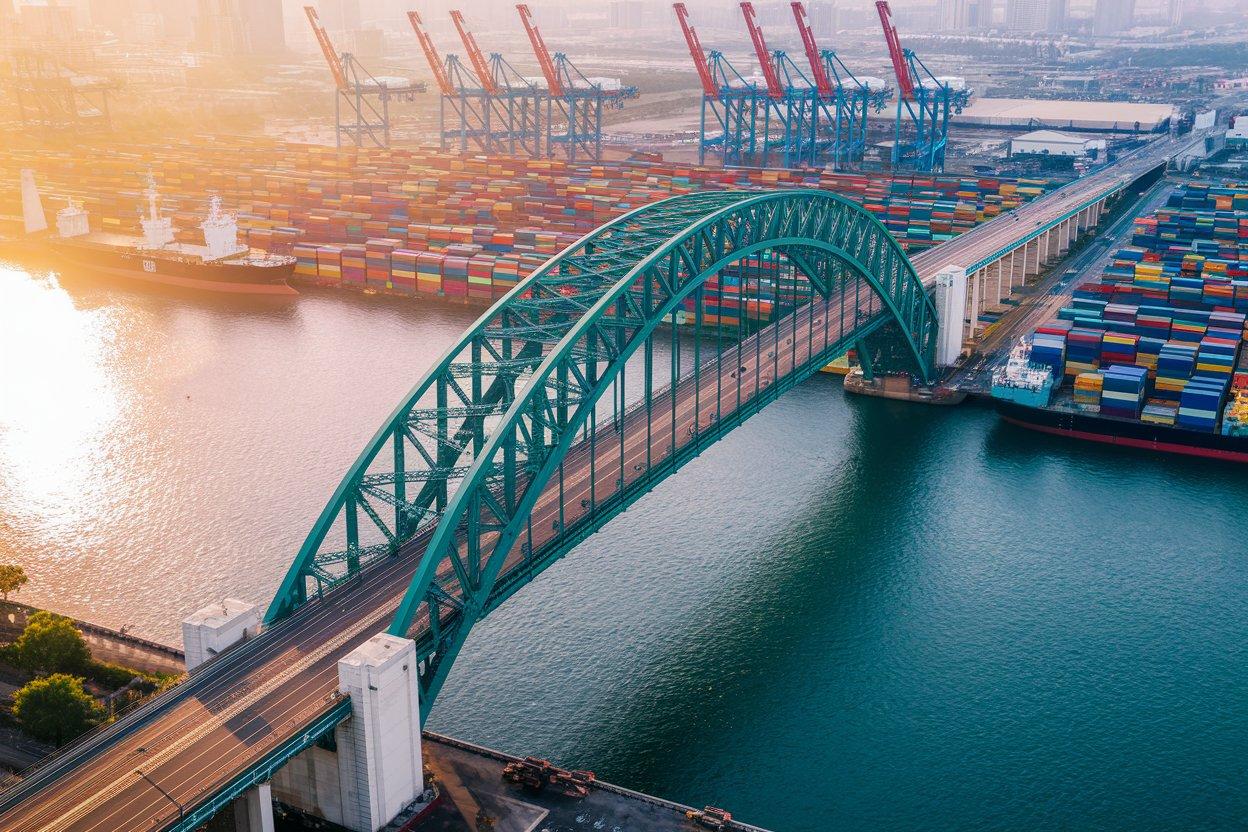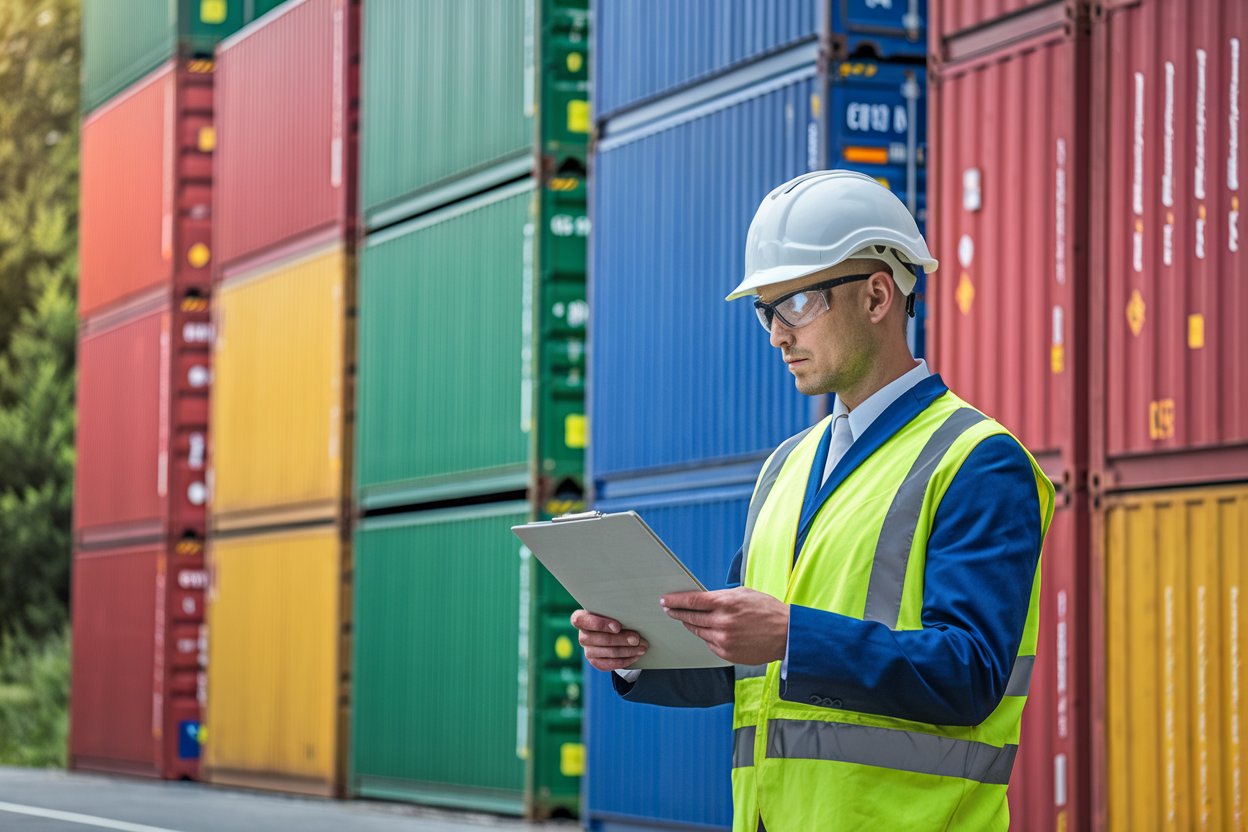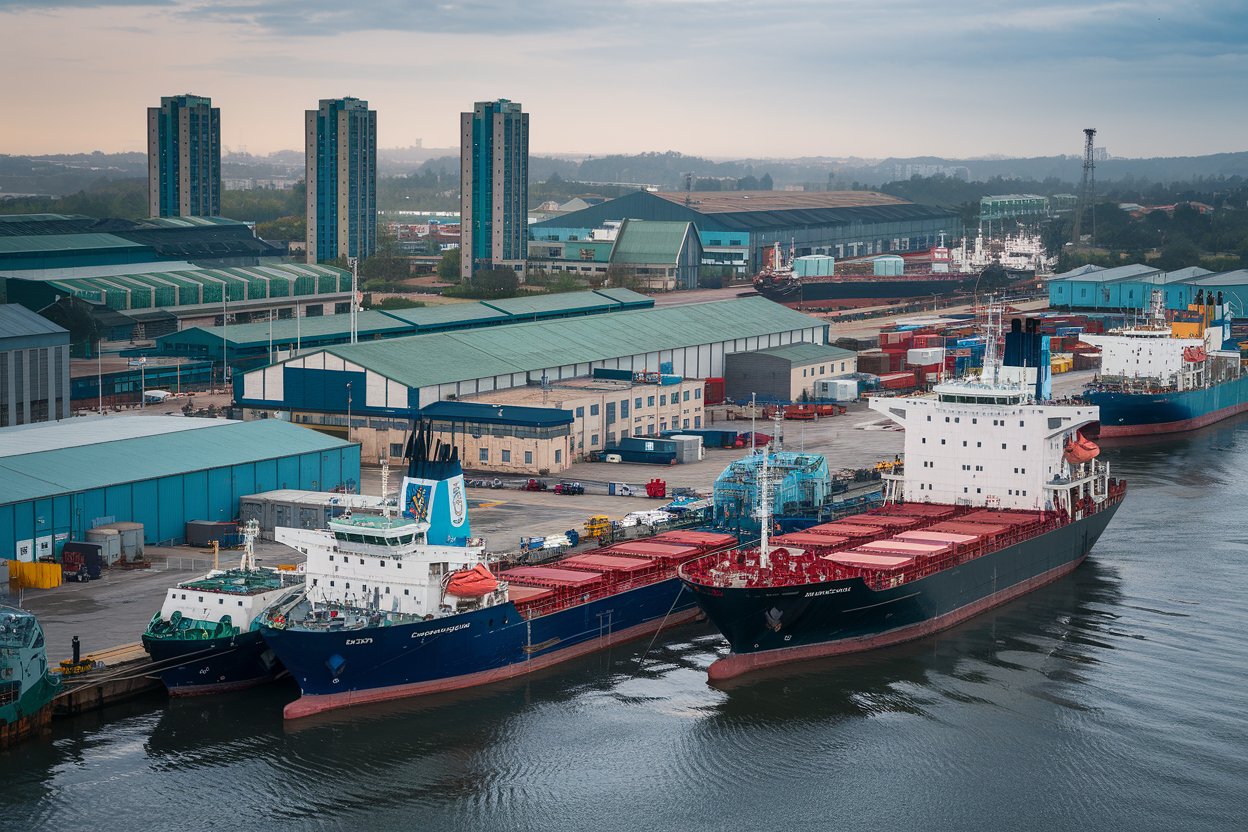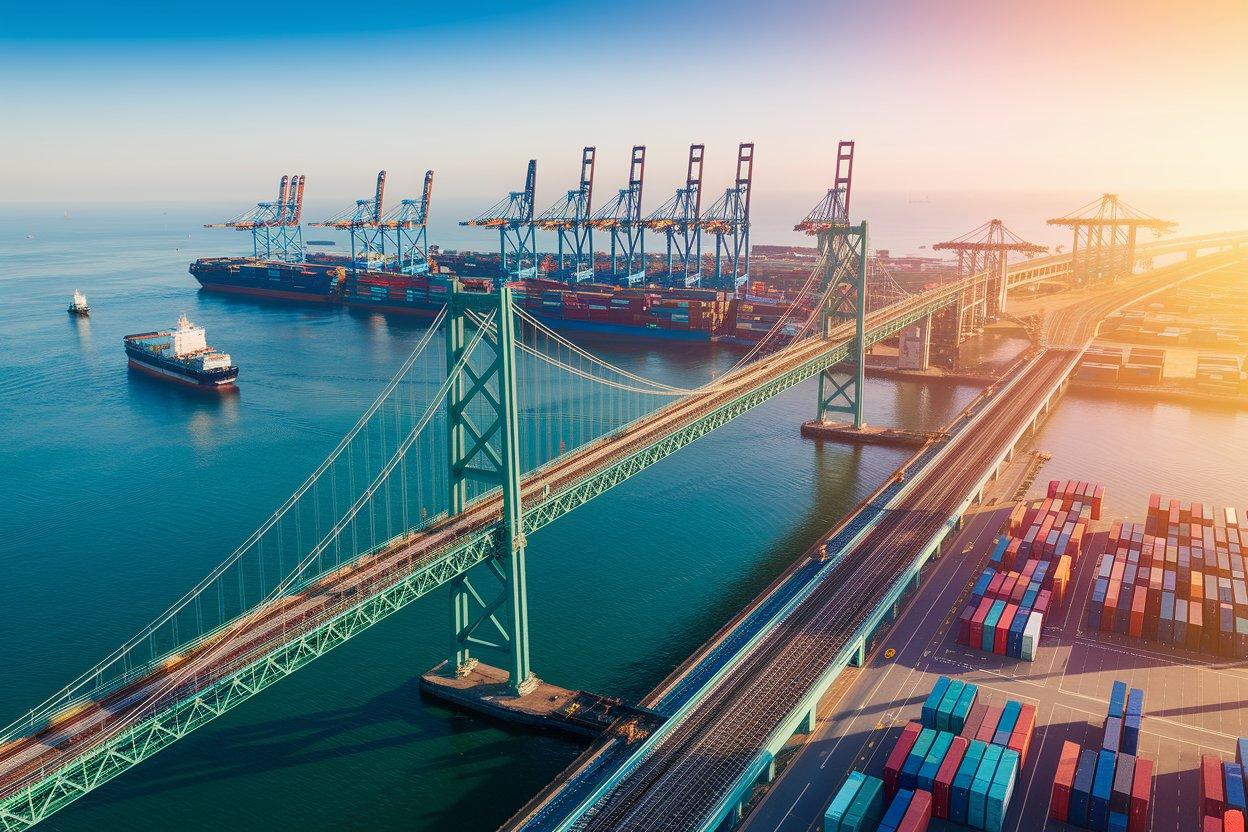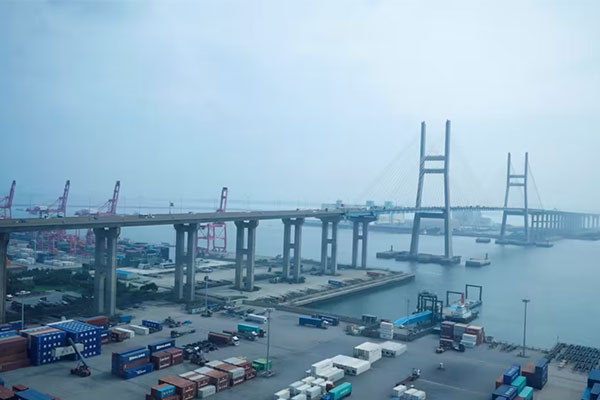- 20 Years of Expertise in Import & Export Solutions

Introduction
On the grand stage of global trade, importing handbags and backpacks from Germany has broad market prospects. However, this process involves many complex links. Whether it's document handling, logistics arrangements, or responding to changes in the international trade situation, professional knowledge and extensive experience are required. This article will provide a detailed interpretation of the relevant key points of importing handbags and backpacks from Germany to help your?Foreign trade?business proceed smoothly.
Professional document processing and logistics arrangement
When importing handbags and backpacks from Germany, document handling is the crucial first step. A commercial invoice is an essential document; it details information such as the description, quantity, and value of the goods, and is an important basis for customs declaration and taxation. A packing list clarifies the packaging of the goods, including the detailed contents of each package, which is helpful for customs inspection and for checking the goods during logistics and transport. A bill of lading, as the document of title, plays a core role in the transport and delivery links.
A professional foreign trade agency can handle these documents accurately and efficiently. For example, when filling out the commercial invoice, ensure that the goods description is accurate and complies with the local trade regulations of Germany as well as the customs requirements of the destination port. For the handling of the bill of lading, the appropriate type of bill of lading will be chosen based on the mode of transport (such as?Ocean shipping?,?Air freight?, etc.), and operations such as endorsement will be carried out in strict accordance with the regulations to ensure the smooth transfer of ownership of the goods.
In terms of logistics arrangements, sea freight is a more common mode of transport, especially for large-volume imports of handbags and backpacks. Choosing the right shipping company and route based on the port of departure and destination of the goods is crucial. At the same time, it is necessary to pay attention to the stability of the shipping schedule to avoid delivery delays due to shipping delays. If air freight is chosen, although the cost is relatively high, the transport speed is fast, making it suitable for urgent replenishment or high-value goods. After the goods arrive at the destination port, arranging for customs clearance and pickup in a timely manner is also an important part of the logistics link. A professional foreign trade agency will work closely with local freight forwarders, customs brokers, etc., to ensure that the goods can be cleared through customs quickly and smoothly and delivered to the client.
Russian market: VTB?Foreign exchange settlement?Advantages
The Russian market has a certain demand for imported handbags and backpacks. When conducting trade with Russian clients, the settlement link is an important part that cannot be ignored.?Zhong Shen?has a unique advantage in this regard, namely the convenience of settling through VTB (Vneshtorgbank), which has many benefits.
Firstly, VTB holds an important position in the Russian financial system and has close cooperative relationships with many Russian enterprises. This makes the flow of funds smoother during the settlement process and can effectively reduce obstacles and delays in the intermediate links. Secondly, VTB is more familiar with the relevant policies and procedures of Sino-Russian trade and can provide relatively convenient settlement services. In practice, after an enterprise exports goods to Russia, by settling through VTB, it only needs to provide the relevant trade documents as required by the bank, such as the commercial invoice, bill of lading, and customs declaration. After the bank verifies them, the settlement operation can be completed. This process is relatively simple and efficient, which helps enterprises to recover funds quickly and reduce the risk of capital turnover.
It is recommended to choose based on transportation distance and product characteristics:?Import/export?Process and Solution
The Southeast Asian market is also one of the important markets for imported German handbags and backpacks. In terms of the import process, the first step is market research to understand the market demand, consumer preferences, and relevant trade regulations for handbags and backpacks in different Southeast Asian countries. For example, some Southeast Asian countries may have strict quality standards and labeling requirements for imported textiles (some materials of handbags and backpacks may involve textiles).
Before importing, a detailed purchase contract must be signed with the supplier, specifying key terms such as the specifications, quantity, price, and delivery date of the goods. At the same time, transport and insurance matters must be arranged. For sea freight imports, a reliable shipping company should be chosen, and corresponding marine insurance should be purchased to ensure the safety of the goods during transport.
After the goods arrive at the destination port in Southeast Asia, they enter the customs clearance stage. When clearing customs, it is necessary to submit documents such as the commercial invoice, packing list, bill of lading, and?Certificate of Origin?certificate to the local customs. Some countries may also require special documents such as a fumigation certificate to prevent the introduction of pests and diseases. A professional foreign trade agency will understand these requirements in advance and assist the enterprise in preparing a complete set of documents to ensure a smooth customs clearance.
In the post-import sales stage, a suitable marketing strategy should be developed based on the characteristics of the local market. For example, in some Southeast Asian countries, e-commerce platforms are developing rapidly, and these platforms can be used to expand product sales channels. At the same time, it is necessary to pay attention to the local tax policies and reasonably plan costs and profits.
Challenges and Opportunities in the Current International Trade Landscape
The current international trade situation is complex and ever-changing, which brings many challenges to importing handbags and backpacks from Germany. The rise of trade protectionism has led some countries to increase import tariffs, increasing import costs. For example, some countries, to protect their domestic luggage industry, impose high tariffs on imported handbags and backpacks, which undoubtedly squeezes the enterprise's profit margin.
At the same time, exchange rate fluctuations are also a major challenge. Germany uses the Euro. During the import process, the instability of the Euro-RMB exchange rate will affect the enterprise's cost accounting and profit expectations. If the Euro appreciates, the import cost will increase accordingly; conversely, if the Euro depreciates, although the import cost decreases, for the exporting enterprise, they may face exchange losses during?Forex Settlement?.
However, challenges also hold opportunities. With the advancement of the "Belt and Road" initiative, the trade between China and countries along the route, including Germany and some Southeast Asian countries, has become closer, and trade facilitation measures have been continuously strengthened. For example, some countries have signed free trade agreements, which have lowered tariff barriers and are conducive to reducing import costs. At the same time, the development of digital trade has also provided new opportunities for enterprises. Through the?E-commerce?platform, it is possible to have more direct contact with overseas consumers, expand sales channels, and reduce marketing costs.
Product Certification Services
When importing handbags and backpacks from Germany, product certification is a crucial step. Different markets have different certification requirements for products. In the European market, CE certification is a common certification standard, which indicates that the product complies with relevant EU directives and harmonized standards. For handbags and backpacks, it may involve certification requirements in aspects such as environmental protection and safety, such as whether the heavy metal content of the leather material exceeds the standard.
In the Southeast Asian market, different countries also have their own certification requirements. For example, some countries may require products to meet local quality standard certification. Although ZhongShen does not directly provide certification services, it will assist clients in understanding the specific requirements of the required certifications and provide relevant consulting services. For example, it will help clients sort out the certification process and inform them of the materials that need to be prepared to ensure that the client can successfully complete the product certification and that the product meets the market access requirements.
Conclusion
Importing handbags and backpacks from Germany involves multiple links, including document handling, logistics arrangements, market characteristics, the international trade situation, and product certification. Choosing a professional foreign trade agency like ZhongShen can fully leverage its professional capabilities in document handling and logistics arrangements, as well as its VTB settlement advantage in the Russian market, while also effectively responding to the challenges brought by the international trade situation and seizing opportunities. In terms of product certification, although it is not handled directly, the assistance services provided can also solve the worries of the enterprise, helping it succeed in the import business.
Recommended for You
? 2025. All Rights Reserved.
